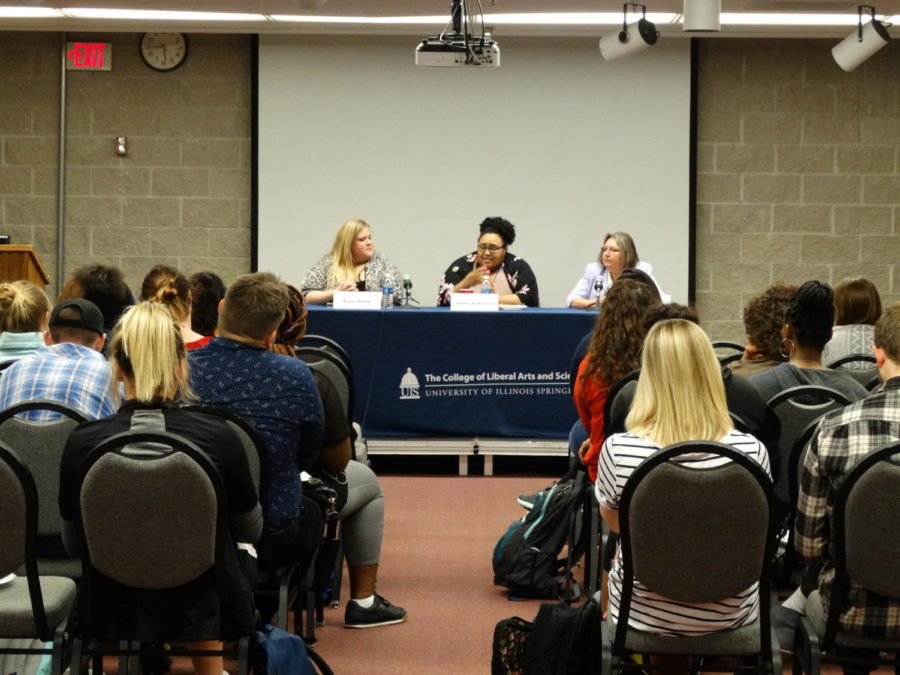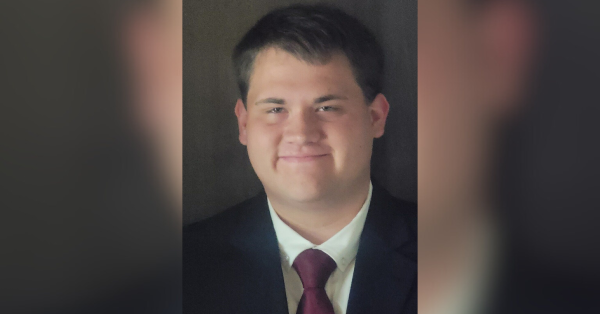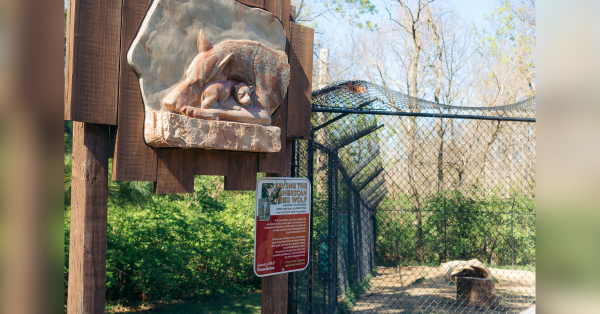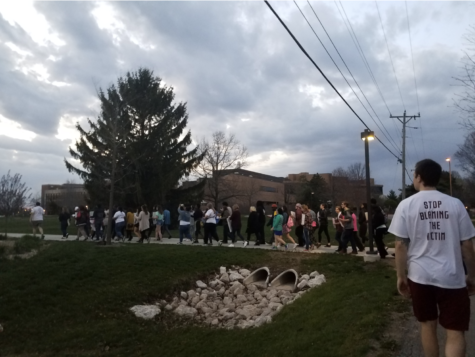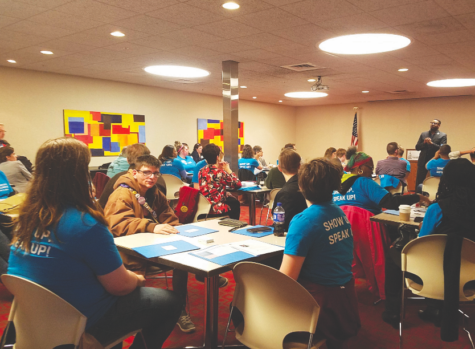What Good is a Psychology Degree?
Psychology is a fascinating and multifaceted field without question, but there remains a question that is familiar to anyone who pursues a liberal arts degree: What can you do with it? That was the question that the panel, held on April 24, set out to answer.
The three panelists, Kayla Bimm, a school psychologist, Jamie Anderson, a case manager at Camelot Cares, and Valarie LeSeure, a career planner for Land of Lincoln Workforce Alliance, each described their personal experiences of a psychology degree. The panelists described the specific duties of their current positions as well as the duties of other positions in the psychology field are. They also described what the specific certifications and educational requirements for various positions were. The panelists answered the various questions from and offered advice to the assembled crowd of students.
One issue covered was the importance of graduate degrees and what issues that the panelists faced while pursuing them. Bimm discussed how extended education was required for school psychologists and her graduate program was particularly intensive, requiring a full-time commitment for roughly three years. Conversely, Anderson described the graduate program she was pursuing as a full-time one-year program with the option of two years at a part-time rate, that she was pursuing while working full-time. While discussing this, they also discussed the importance of financial aid in pursuing these degrees. Bimm also mentioned that those with a Master’s degree did receive higher pay.
Some of the advice the panelists offered went beyond psychology. LeSeure stressed the importance of remaining open to any and all opportunities for career advancement, rather than focusing entirely on a specific position and blinding oneself to anything else. Anderson emphasized the importance of time management and taking internships seriously. Often, even if someone knows that they are not going to remain with that organization, it is still important to work hard at an internship. The experience and connections that are built during an internship are incredibly valuable.
Another topic covered was the versatility of the knowledge that comes with a psychology degree, even when it might not benefit one’s career directly. While the panelists admitted that most jobs in their experience didn’t place significant importance on academic minors when considering applicants, all agreed that the skills they developed in general allowed them to do their jobs better.

